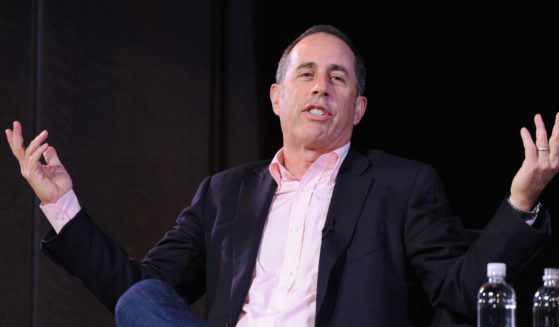Senate GOP to cut debate time on Trump nominees
WASHINGTON (AP) — President Donald Trump’s Senate GOP allies, frustrated by delays in confirming dozens of lower-profile nominees, rammed through a rules change Wednesday that cuts back debate on most of his picks.
In a series of procedural votes, the Republicans indefinitely restored rules in place during the first couple years of President Barack Obama’s second term. Those rules had lapsed, allowing any senator to force 30 hours of debate on a nominee.
The new rules limit debate on most nominees to two hours instead of 30. White House selections for the Cabinet, Supreme Court and appeals courts would be exempted. Every Democrat opposed the maneuver in a pair of 51-48 votes, and they were joined by two Republicans: Sens. Susan Collins of Maine and Mike Lee of Utah.
The Senate action came after a partisan debate that featured unusually personal finger-pointing between the chamber’s party leaders, Majority Leader Mitch McConnell, R-Ky., and Minority leader Chuck Schumer, D-N.Y. They have battled over judicial filibusters since the administration of President George W. Bush.
McConnell, no stranger to obstructionist tactics himself, said the situation had gotten out of hand, with the Senate taking 128 votes to end debate on Trump’s nominees during his first two years in office, far more than under other presidents.
“The comprehensive campaign by Senate Democrats to delay Senate consideration of presidential nominations is now more than two years old,” McConnell said. “It’s time for this sorry chapter to end.”
Pointing at Schumer repeatedly during a tartly worded speech, McConnell said the battles on presidential nominees date back to Schumer-led filibusters of Bush appeals court picks such as Miguel Estrada, whose nomination stalled after a lobbying campaign by liberal judicial activists.
“He started this whole thing that we’ve been wrestling with since 2003, cooked it up, convinced his colleagues to do it,” McConnell said.
Schumer said McConnell was Machiavellian, cynical and hypocritical, and used his speech to recount a series of GOP power plays.
“This is a very sad day for the Senate. At a time when Leader McConnell brags about confirming more judges than anyone has done in a very long time, he feels the need to invoke the terribly destructive and disproportionate procedure of the ‘nuclear option’ in order to fast-track even more of President Trump’s ultra-conservative nominees to the federal bench,” Schumer said.
Schumer, however, supported this step in a 2013 vote orchestrated by then Majority Leader Harry Reid, D-Nev., that eliminated the filibuster on Cabinet nominees and most judicial appointees. The maneuver allows the majority to change the rules on a party-line vote.
Republicans said at the time that Reid and Democrats would come to regret the change, which has given Trump largely free rein to fill numerous judicial vacancies that have piled up over the years.
“I share some of the responsibility for where we find ourselves today,” said Sen. Michael Bennet, D-Colo. He said McConnell “said at the time that ‘you’re going to come to regret this decision,’ and I will say this about him, he was right. I do.”
Many Democrats, who benefited from prior rules changes under Obama, now say the GOP move will enable Trump and future presidents, so long as their party controls the Senate, to run roughshod over the Senate.
They say the hurdles required to win confirmation should be difficult as a way to ensure nominees are ethical, qualified and responsive to requests by senators for information.
“There is no emergency that justifies changing the Senate rules. Sen. McConnell himself admitted the Senate has plenty of time to consider nominees,” said Sen. Dick Durbin, D-Ill. “This is all about avoiding close scrutiny for extreme ideological nominees that Republicans want to pack onto the federal courts for lifetime appointments.”
But other Democrats, McConnell said, indicated behind the scenes that they could support the rules change provided that it wouldn’t take effect until the next administration.
Democrats also say that GOP complaints over their tactics now ring hollow after the obstructionism Obama experienced over his two terms.
Merrick Garland, a federal appeals court judge nominated to the Supreme Court by Obama, failed to get a Senate hearing, and Republicans stalled numerous other Obama judicial nominees — both when the GOP was in the minority and then after retaking the Senate in 2015.
Armed with the White House and control of the Senate, Trump is now confirming both district and appeals court judges at a dizzying pace and is positioned to reshape the federal judiciary even if he fails to win a second term.
The Western Journal has not reviewed this Associated Press story prior to publication. Therefore, it may contain editorial bias or may in some other way not meet our normal editorial standards. It is provided to our readers as a service from The Western Journal.
Truth and Accuracy
We are committed to truth and accuracy in all of our journalism. Read our editorial standards.












